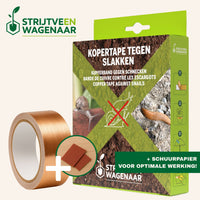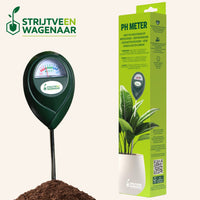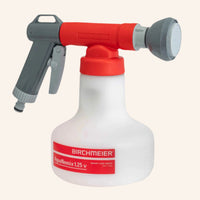Nematodes generally have a lifespan of several weeks to months, depending on several factors such as temperature and soil conditions.
Nematodes generally have a lifespan of several weeks to months, depending on several factors such as temperature and soil conditions.
Nematodes are beneficial because they are natural enemies of various harmful insect larvae, including grubs, leatherjackets, fleas, fungus gnats and other soil insects. They therefore help to biologically control pests in the garden.
Nematodes are beneficial because they are natural enemies of various harmful insect larvae, including grubs, leatherjackets, fleas, fungus gnats and other soil insects. They therefore help to biologically control pests in the garden.
The ideal months to use nematodes are usually from early spring to late summer, when soil temperatures are between 10 and 20 degrees Celsius. During this period, nematodes are most active and effective.
The ideal months to use nematodes are usually from early spring to late summer, when soil temperatures are between 10 and 20 degrees Celsius. During this period, nematodes are most active and effective.
The effectiveness of nematodes varies depending on several factors, including the species of nematode, the concentration at which they are applied, soil temperature and moisture, and the level of infestation with target insects. In general, however, nematodes are very effective at reducing populations of harmful soil insects.
The effectiveness of nematodes varies depending on several factors, including the species of nematode, the concentration at which they are applied, soil temperature and moisture, and the level of infestation with target insects. In general, however, nematodes are very effective at reducing populations of harmful soil insects.
Nematodes are microscopic worms that are parasitic to various harmful insect larvae. They enter the larvae and secrete bacteria that kill the larvae, after which the nematodes feed on the dead larvae and reproduce.
Nematodes are microscopic worms that are parasitic to various harmful insect larvae. They enter the larvae and secrete bacteria that kill the larvae, after which the nematodes feed on the dead larvae and reproduce.
Nematodes can be effective against a variety of soil insect larvae, including grubs, leatherjackets, fleas, fungus gnats, woodlice and more.
Nematodes can be effective against a variety of soil insect larvae, including grubs, leatherjackets, fleas, fungus gnats, woodlice and more.
Yes, nematodes are safe for humans, pets and the environment. They are biodegradable and pose no danger to organisms other than the target insects.
Yes, nematodes are safe for humans, pets and the environment. They are biodegradable and pose no danger to organisms other than the target insects.
The best time to introduce nematodes is usually in spring or early summer, when soil temperatures are between 10 and 20 degrees Celsius, which provides optimal conditions for nematode activity.
The best time to introduce nematodes is usually in spring or early summer, when soil temperatures are between 10 and 20 degrees Celsius, which provides optimal conditions for nematode activity.
Depending on the conditions and target insects, nematodes can take effect within days to weeks. It is important to be patient and check for results regularly.
Depending on the conditions and target insects, nematodes can take effect within days to weeks. It is important to be patient and check for results regularly.
Nematodes are available from garden centres, online stores and specialist suppliers of biological control products.
Nematodes are available from garden centres, online stores and specialist suppliers of biological control products.
Nematodes should be mixed with water and spread evenly over the area to be treated, preferably in humid conditions and out of direct sunlight.
Nematodes should be mixed with water and spread evenly over the area to be treated, preferably in humid conditions and out of direct sunlight.
Yes, the method of introducing nematodes can vary depending on soil conditions and target insects. It is advisable to follow the supplier's instructions for best results.
Yes, the method of introducing nematodes can vary depending on soil conditions and target insects. It is advisable to follow the supplier's instructions for best results.
Yes, nematodes can be used preventively to control the population of harmful soil insects before they damage plants and crops.
Yes, nematodes can be used preventively to control the population of harmful soil insects before they damage plants and crops.
Yes, nematodes should be stored at a cool temperature (often between 4-8 degrees Celsius) and out of direct sunlight to maintain their viability until use.
Yes, nematodes should be stored at a cool temperature (often between 4-8 degrees Celsius) and out of direct sunlight to maintain their viability until use.






